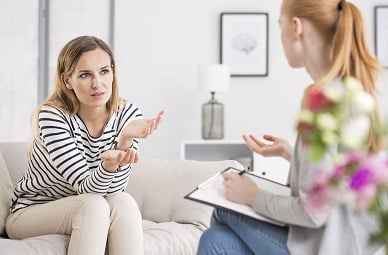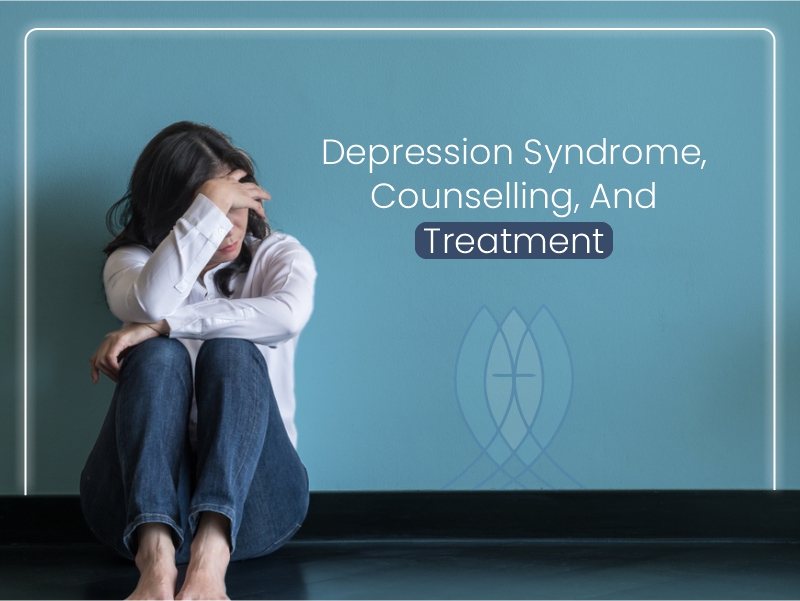Explore effective techniques through counselling for anxiety disorder programs
Explore effective techniques through counselling for anxiety disorder programs
Blog Article
Exploring Different Strategies in Therapy for Anxiousness Disorder for Enduring Adjustment
When dealing with anxiousness problems, it's important to explore a selection of counseling strategies. Each method uses one-of-a-kind insights and tools to aid you manage your signs properly. You might discover that incorporating techniques can produce the very best outcomes. Comprehending the nuances of these approaches is vital to fostering long lasting adjustment. What happens if the right combination could release a brand-new degree of psychological health for you?
Understanding Anxiety Disorders: A Quick Overview
Anxiousness problems, which influence countless individuals worldwide, can considerably affect day-to-day life. You could experience overwhelming feelings of worry or worry that seem uncontrollable. These feelings can result in physical signs and symptoms like an auto racing heart, sweating, or perhaps dizziness. Common sorts of anxiousness conditions include generalized anxiety condition, panic attack, and social stress and anxiety disorder. Each has unique signs, however they all share a propensity to disrupt your routine and relationships.Understanding the root causes of your anxiety is important. It may come from genes, brain chemistry, or life experiences. Recognizing your triggers can aid you handle your reactions much better. It's important to bear in mind that you're not the only one in this battle. Many individuals encounter similar obstacles, and looking for aid is a strong action towards sensation much better. By learning more about anxiety problems, you're already on the course to understanding and handling your condition extra properly.
Cognitive-Behavioral Treatment: Testing Negative Thought Patterns

Recognizing Unfavorable Thought Triggers
When you experience moments of distress, identifying the certain triggers behind your unfavorable ideas can be essential in taking care of stress and anxiety. Start by focusing on circumstances that provoke sensations of concern or fear. Is it a congested area, a forthcoming due date, or a conversation with specific individuals? Take down these instances in a journal. This will help you identify patterns in your thinking. Also, notification physical experiences that accompany your adverse thoughts, like an auto racing heart or tightness in your breast. By pinpointing these triggers, you get understanding right into what's fueling your anxiousness. Recognizing these connections is the primary step in challenging those ideas and eventually restoring control over your psychological reactions.

Replacing Thoughts With Positives
Challenging unfavorable thought patterns is a necessary step in transforming your attitude and lowering stress and anxiety. You might usually discover yourself trapped in cycles of insecurity or devastating thinking. As opposed to letting these thoughts determine your feelings, practice replacing them with positive affirmations or practical options. When you believe, "I can not manage this," shift it to, "I can handle obstacles one step at a time." This basic change can substantially impact your mood. Frequently determining and countering these negative thoughts helps produce a healthier internal discussion. Remember, it takes time and effort, but constantly practicing this technique can bring about enduring modification, empowering you to face anxiety with restored self-confidence and strength
Structure Coping Methods Together
Changing unfavorable ideas is just the start of taking care of stress and anxiety effectively. To create long lasting modification, you need to develop coping techniques that empower you. Cognitive-Behavioral Therapy (CBT) aids you determine and test those unhelpful idea patterns. Together, you and your counselor can explore just how these ideas impact your sensations and behaviors.Start by creating functional methods, like journaling or mindfulness workouts, that enable you to confront stress and anxiety head-on. When you face your anxieties gradually, you'll learn to react in a different way.

Mindfulness and Acceptance-Based Approaches: Growing Present-Moment Awareness
As you browse the complexities of anxiousness, incorporating mindfulness and acceptance-based techniques can significantly boost your capability to grow present-moment recognition. By focusing on the present moment, you'll locate that you can observe your thoughts and feelings without judgment. This method helps you acknowledge your anxiety without really feeling overwhelmed by it.Engaging in mindfulness exercises, such as deep breathing, body scans, or guided meditations, enables you to ground yourself in your existing experience. Acceptance-based methods encourage you to accept your feelings rather than combat against them. They lose their power over you.Incorporating these techniques into your day-to-day regimen can change how you react to stress and anxiety when you accept your feelings. You'll establish strength and learn to browse demanding situations with higher ease. Eventually, cultivating present-moment awareness lays the structure for long lasting change, empowering you to lead a much more satisfying life.
Exposure Therapy: Facing Concerns Slowly
Exposure therapy assists you confront your concerns in a steady method, making it less overwhelming. You'll discover methods to encounter anxiety-provoking scenarios detailed, while additionally developing coping methods to handle your responses. This technique equips you to take control and minimize anxiety in time.
Gradual Exposure Methods
When encountering stress and anxiety, gradually facing your concerns can be a powerful way to regain control. This method, called progressive direct exposure, entails slowly revealing on your own to the circumstances or objects that activate your stress and anxiety. Start with much less daunting scenarios and progressively function your means as much as even more challenging ones. For circumstances, if you're terrified of public talking, you could begin by speaking before a mirror, then advance to sharing thoughts with a friend, and eventually resolve a little group. Each step assists desensitize you to the anxiety, building your confidence gradually. Remember, it's essential to pace on your own and commemorate little victories as you relocate via this process, enhancing your capacity to take care of anxiousness effectively.
Structure Coping Techniques
Structure effective coping techniques is vital for taking care of anxiety, specifically as you face your fears progressively. One effective approach is exposure therapy, where you start by facing your anxieties in a controlled manner. Begin with much less daunting situations and gradually function your method as much as even more tough scenarios. This gradual exposure aids desensitize you to anxiousness sets off, making them much less overwhelming.Incorporate leisure methods, such as deep breathing or mindfulness, to calm your mind throughout direct exposure. Track your progression, commemorating little victories in the process to increase your self-confidence. Keep in mind, it's alright to take your time; the goal isn't excellence yet consistent enhancement. By building these strategies, you'll equip yourself to browse stress and anxiety and accept life extra completely.
Psychodynamic Therapy: Uncovering Origin of Anxiety
Psychodynamic treatment explores the unconscious mind, exposing the origin causes of your stress and anxiety - Counseling services for anxiety. By examining your ideas, sensations, and previous experiences, this approach helps you uncover underlying disputes and unsettled concerns that may add to your current anxiety. You'll deal with a therapist to check out youth experiences, connections, and emotional patterns that shape your reactions today.As you acquire insight right into these much deeper layers of your subconscious, you'll start to acknowledge how past occasions affect your existing behavior. This understanding can cause catharsis, permitting you to process emotions you could have suppressed.Through the restorative connection, you can likewise identify defense reaction that may have established gradually, supplying a more clear course to change. Eventually, psychodynamic therapy furnishes you with the tools to resolve your anxiousness at its core, promoting long lasting transformation in your emotional well-being
Alternative and integrative Methods: Incorporating Methods for Greater Effectiveness
Integrating numerous restorative techniques can enhance your journey toward managing anxiousness better. By integrating components from cognitive-behavioral treatment, mindfulness techniques, and alternative methods, you can develop a tailored approach that resolves your unique needs. You may make use of cognitive-behavioral techniques to test negative thought patterns while including mindfulness exercises to ground on your own in the present moment.Additionally, checking out holistic practices such as yoga or reflection can advertise relaxation and reduce anxiousness symptoms. This blend enables you to develop greater self-awareness and resilience.Experimenting with these diverse techniques can help you discover what resonates most with you. Bear in mind, it's about locating a harmony that functions, instead of staying with a single approach. This integrative technique not just provides prompt alleviation but likewise promotes long-term abilities for managing anxiety, encouraging you to reclaim control over your life.
The Function of Support Equipments: Structure Resilience Through Link
While it might appear that taking care of anxiety is a singular journey, having a strong support system can play a necessary role in your strength. Surrounding yourself with understanding good friends, family members, or support system creates a risk-free area where you can openly share your sensations and experiences. You advise on your own that you're not alone in this struggle.These connections supply support and can provide sensible coping approaches that have worked for others when you link with others. It's likewise an opportunity to acquire point of view; pals can help you see scenarios in a different way, minimizing sensations of isolation.Moreover, psychological support cultivates a sense of belonging, which can considerably alleviate stress and anxiety signs and symptoms. By leaning on your support system, you can build resilience and tackle obstacles a lot more efficiently. Bear in mind, connecting for help signifies strength, and it can make all the difference in your trip toward managing stress and anxiety.
Often Asked Concerns
What Are the Usual Signs And Symptoms of Anxiety Problems?
You could experience uneasyness, exhaustion, difficulty focusing, irritation, muscle tension, and sleep disturbances. Physical signs can include rapid heartbeat, sweating, and shivering. Recognizing these indications early can assist you seek ideal support and therapy.

The Length Of Time Does Therapy Normally Last for Anxiety Disorders?
Treatment for anxiety disorders typically lasts anywhere from a few weeks to several months. It truly relies here on your private requirements, development, and the strategies your specialist utilizes to help you manage your stress and anxiety effectively.
Can Medication Be Made Use Of Together With Therapy for Stress and anxiety?
Yes, medication can most definitely be used together with treatment for anxiousness. Integrating both methods typically improves therapy performance, assisting you manage symptoms while exploring underlying issues with therapy. Constantly consult your doctor for individualized advice.
Are There Self-Help Approaches for Handling Stress And Anxiety?
Yes, there are numerous self-help approaches for managing stress and anxiety. You can exercise mindfulness, participate in normal workout, keep a balanced diet regimen, establish a routine, and make use of deep breathing methods to help in reducing anxiety signs effectively.
How Do I Know if I Required Professional Aid for Anxiousness?
You need to take into consideration seeking professional aid for stress and anxiety if it interferes with life, triggers considerable distress, or if self-help techniques aren't functioning. Trust your instincts; reaching out can bring about better coping abilities and support. Common types of anxiety problems include generalized stress and anxiety condition, panic condition, and social stress and anxiety disorder. When you experience moments of distress, recognizing the certain triggers behind your unfavorable thoughts can be essential in managing anxiousness. Changing adverse thoughts is just the start of managing stress and anxiety successfully. By analyzing your ideas, feelings, and past experiences, this approach helps you discover underlying conflicts and unsettled concerns that might contribute to your existing anxiousness. It's additionally an opportunity to get point of view; close friends can assist you see scenarios differently, lowering sensations of isolation (Counseling services for anxiety).Moreover, emotional support promotes a feeling of belonging, which can significantly reduce anxiousness signs
Report this page